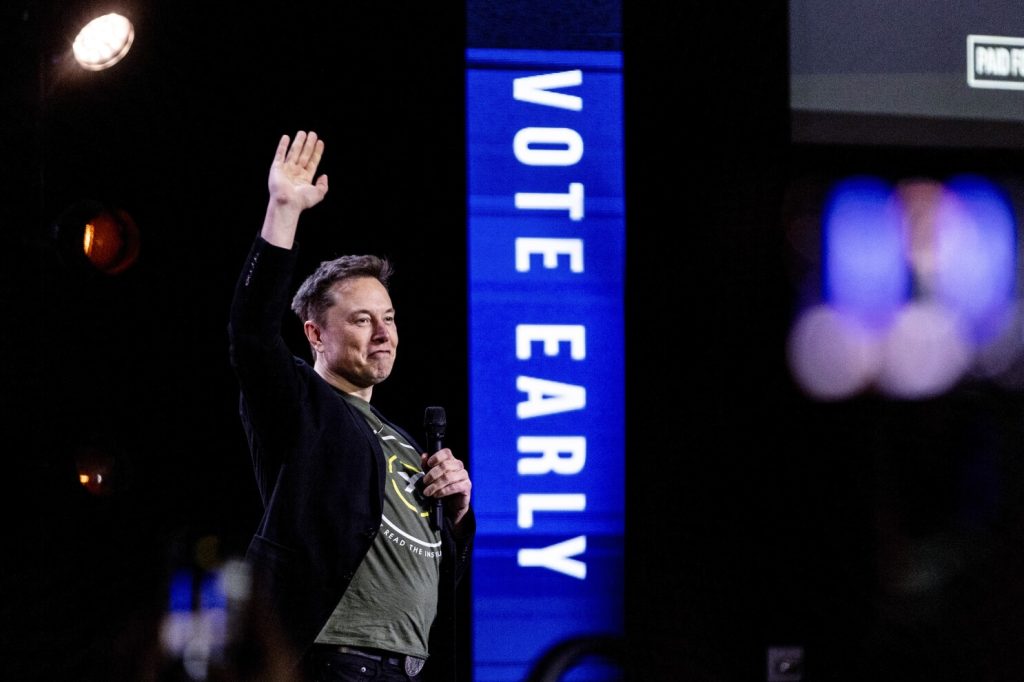Why experts are skeptical of Elon Musk’s lofty pro-Trump predictions based on early vote data
2 min read
Elon Musk speaks at Life Center Church in Harrisburg, Pa., Saturday, Oct. 19, 2024. (Sean Simmers/The Patriot-News via AP)

Elon Musk speaks at Life Center Church in Harrisburg, Pa., Saturday, Oct. 19, 2024. (Sean Simmers/The Patriot-News via AP)
Experts are raising concerns over Elon Musk’s recent predictions about Donald Trump’s potential victory in the upcoming elections, particularly in swing states like Pennsylvania and Virginia. Musk’s claims are based on early voting turnout data, which he argues shows a strong Republican showing compared to 2020. However, many voting experts caution that this data is incomplete and should not be used to make sweeping predictions about the election outcome.
David Becker, an expert in voting procedures, emphasized that the race is expected to be very close and that early voting data alone does not provide a clear picture of voter intentions. Key insights, such as who voters support and how many will vote on Election Day, are still unknown. Becker noted that while early voting trends can indicate shifts in participation, they don’t determine the winner.
Musk’s predictions, which have garnered significant attention on social media, could contribute to post-election confusion or skepticism about the legitimacy of the results if Trump does not win. Similar narratives have been propagated by various political figures, highlighting a pattern of using incomplete data to generate partisan optimism.
Moreover, comparisons between early voting in 2024 and 2020 fail to account for the broader context of the election, including the influence of unaffiliated voters and the fact that not all registered party members will vote for their party’s candidate.
Critics argue that Musk’s approach lacks a solid statistical foundation and may be more about partisan hope than an accurate assessment of the election landscape. In a polarized political environment, this kind of commentary can potentially undermine public confidence in the electoral process, especially if results do not align with the predictions made.